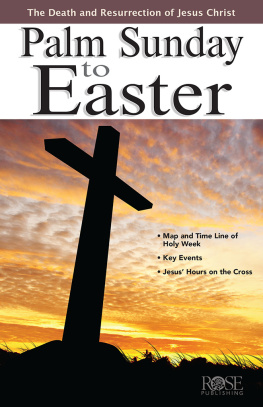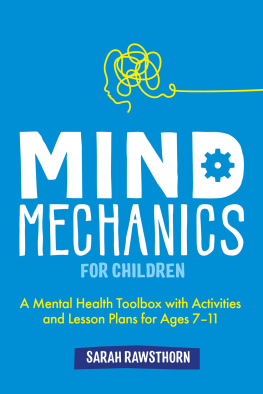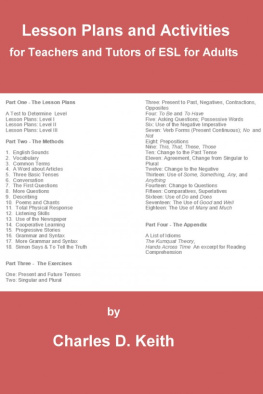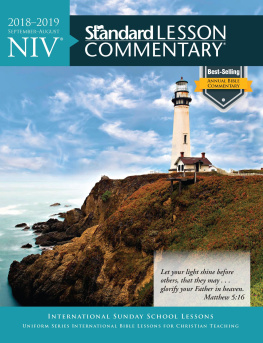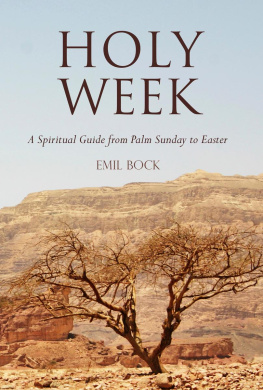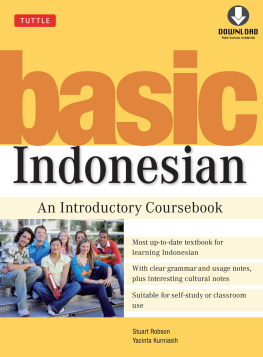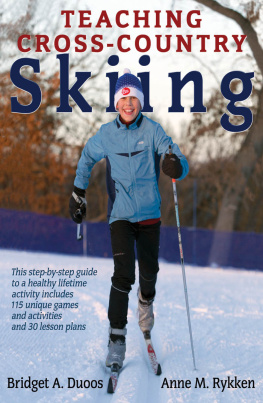Title Page
10 RELIGIOUS EDUCATION LESSON PLANS FOR 5-7 YEAR OLDS
P S Quick
Publisher Information
Published in 2014 by
Andrews UK Limited
www.andrewsuk.com
The right of P S Quick to be identified as the Author of this Work has been asserted in accordance with the Copyright, Designs and Patents Act 1998
Copyright 2014 P S Quick
All rights reserved. No part of this publication may be reproduced, stored in a retrieval system, or transmitted, in any form or by any means without the prior written permission of the publisher, nor be otherwise circulated in any form of binding or cover other than that in which it is published and without a similar condition being imposed on the subsequent purchaser. Any person who does so may be liable to criminal prosecution and civil claims for damages.
Introduction
These ten Religious Education lessons cover the meaning of festivals and celebrations focusing on the events celebrated at Easter and Christmas. Children will explore what a festival is before learning about Shrove Tuesday, Ash Wednesday, Lent, Palm Sunday, Holy Week, Easter Sunday, Advent, the Christmas story, the gifts brought by the Wise Men and invisible gifts.
Each lesson includes lesson objectives, a list of resources, an introduction, main lesson, practical activities, a plenary session, extension activities for cross curricular work and ICT opportunities which include web links and assessment.
What is a Festival?
Lesson 1
What is a Festival?
Learning Objectives and Outcomes
- Children will be able to name and describe days they celebrate throughout the year.
- They will recognise the difference between holidays and religious festivals.
- They will understand that religious festivals are occasions for remembering particular events.
Resources
- Timeline - either on whiteboard or just a line and pegs to pin up names of celebrations in order.
- A bank of pictures showing festivals and celebrations - either on a whiteboard or as hard copies.
- A large poster sized piece of paper for each group, crayons, pencils, scissors and small pieces of paper, glue.
Introduction
Ask children if they know what a festival is. What do we mean when we say we are going to celebrate? Once children have described and understood these terms ask them about ways they celebrate - gifts, cards, food, activities, etc.
Main Lesson
Drawing events from the children make a list of all the events they celebrate. These could include birthdays, weddings, achievements, holidays, religious festivals. Once the children have exhausted their ideas pictures could be shown on the whiteboard or held up individually. Ask children to name the event and identify whether or not it had already been included on the list.
Ask if the children how a religious festival differs from an event such as a holiday. Suggest some children to come out and underline the events on the list that are religious festivals. Having agreed that all those underlined are religious festivals or holy days ask why it is important that we celebrate them. Try to include festivals from a variety of religions.
Talk to the children about the times in the year when we celebrate these events and record them on a timeline as they occur throughout the year.
Ask children to choose any event on a timeline and discuss with a partner how it is celebrated. Do both children celebrate it in the same way? As a class get pairs to feed back details of their celebrations. Question children as to why we might give gifts or eat certain food on these occasions. Discuss the fact we are sharing and celebrating together as a family or community.
Activity
Divide children into small groups and ask each to choose a different religious festival. It may be useful to group children of the same religion together here so that they have firsthand knowledge if the festival they are describing.
Give each group a large poster sized piece of paper, small pieces of paper, crayons, pencils and scissors. Ask children to record everything they can about the way the festival chosen is celebrated. They should include drawings, lists and written accounts.
Plenary
Share posters made by each group. Compare things that are the same and different in the way we celebrate the festivals depicted on the posters.
Assessment
- Can children name at least one religious festival celebrated each year?
- Can they describe the way it is celebrated?
- Can they give the reason it is celebrated?
Extension Activities
Children could research how a festival they celebrate is celebrated in a different part of the world. They could research a festival from a faith other than their own and compare its similarities and differences.
ICT Opportunities
Children could use the internet to find out more festivals and celebrations.
http://www.bbc.co.uk/cbeebies/lets-celebrate/ Watch video clips about celebrations around the world, listen to celebration stories.
http://www.kidsgen .com/events/ A range of information and activities here connected to events throughout the year.
http://www.esolcourses.com/topics/world-festivals.html/ activities, worksheets, games, information for all ages about festivals and celebrations around the world.
Christian Celebrations and Festivals - Easter
Lesson 2
Shrove Tuesday
Learning Objectives and Outcomes
- Children will learn why we make and eat pancakes on Shrove Tuesday and what this day is called in other countries.
- They will know it is the last day before Lent begins.
- They will learn how it was the day on which people confessed their sins and think about the need for feeling sorry for things we have done wrong.
Resources
- Pictures or video of pancake races.
- Other names for Pancake Day written on card or on Interactive whiteboard.
- Paper and pencil or computers to access online activity to write about Shrove Tuesday.
Introduction
Teach this lesson on Pancake Day if possible. Ask children if they know what the day is. Discuss what is needed to make a pancake and how Pancake Day is celebrated. A video could be shown of pancake races.
Explain that Christians know this day as Shrove Tuesday. The word shrove comes from an old word shrive which meant to confess or own up to something they did wrong. They liked to do this on Shrove Tuesday because it was the last day before Lent begins. (Explain they will learn about Lent in the next lesson).
Main Lesson
Tell children that in other countries this day is also celebrated but in some countries known as a different name - France and the United States call it Mardi Gras which means Fat Tuesday, Brazil and Sweden also have names which means Fat Tuesday while Iceland calls it Bursting Day. Discuss why children think it has these names.
Establish that Shrove Tuesday/ Fat Tuesday/Bursting Day was the day when all the rich food is eaten before Lent begins - a time when many people in the past gave up rich food. (The reason for this will be given in the next lesson.) No food was ever wasted so that is why it was always eaten up on this day.
Ask children to think again about it being the day people used to confess the things they had done wrong. Do they think it is important to do this? Tell children to close their eyes and think about something they have done wrong in the past. How did they feel afterwards, knowing it was wrong? Did they get found out? Did they say sorry?
Ask children to open their eyes and to think about when someone has been unkind or hurt them. Did it help when someone said they were sorry? Discuss whether people should always be punished. Do we sometimes do something by accident or make mistakes we would not do again? Are there ways of putting things right?
Next page

